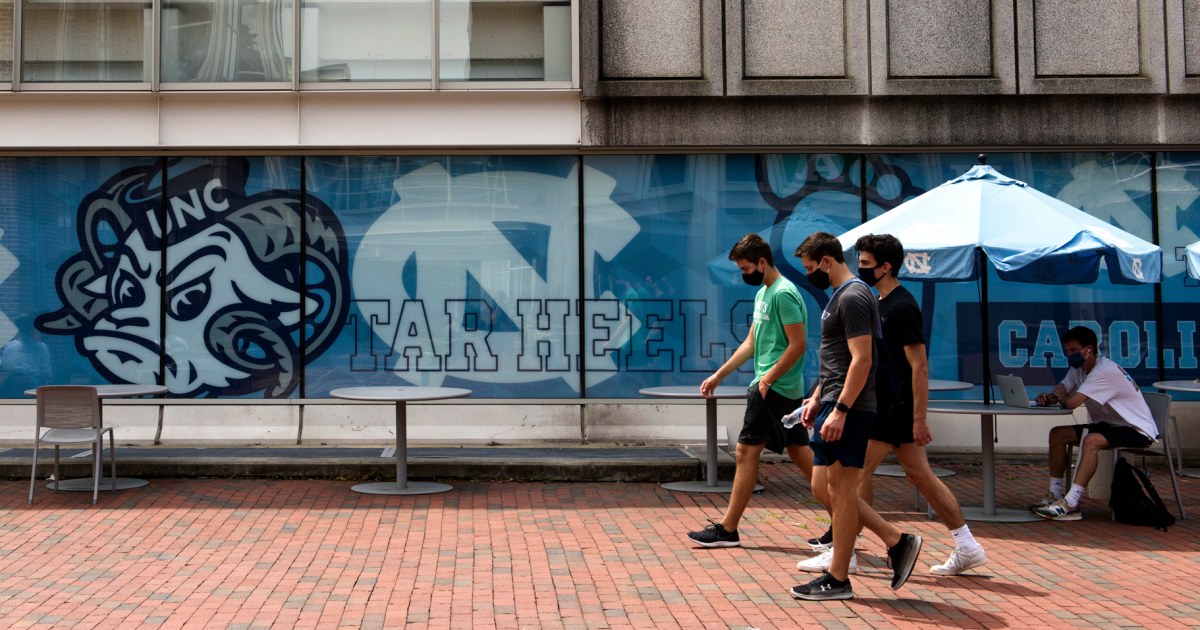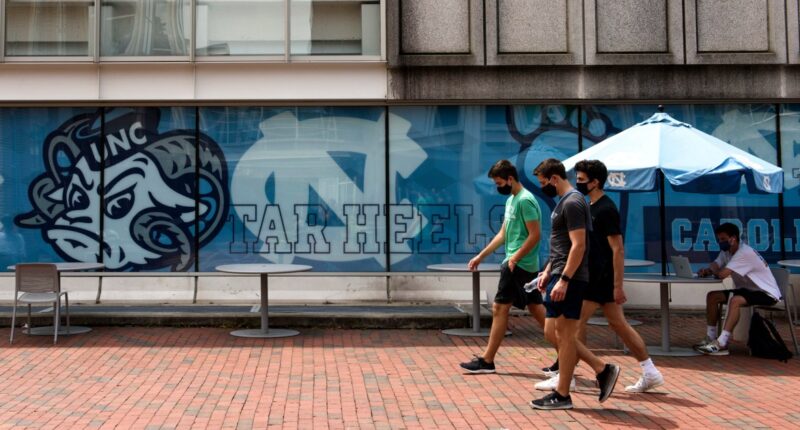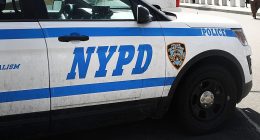
In a bustling sunken courtyard at the center of the University of North Carolina’s Chapel Hill campus, a group of students handed out slips of papers with a warning for their peers.
“Is diversity at UNC important to you? It’s under threat,” the handouts read.
The message came ahead of U.S. Supreme Court rulings in a pair of affirmative action cases this spring, which could drastically alter how race is considered in admissions at North Carolina’s flagship university and other colleges.
The debate over race-conscious admissions policies comes as many schools are grappling with their racist pasts and striving for greater inclusion of underrepresented racial and ethnic groups.
But like much of America, students at UNC are divided on the issue of affirmative action — the practice of factoring race in admissions to boost minority enrollment — and the role it should play in creating a diverse student body.
Interviews with more than a dozen students revealed that most valued the benefits of diversity and thought the university should do more to correct its blemished record on race.
Many students felt affirmative action was needed to achieve those goals. Others were uncomfortable that race gave certain applicants an edge in UNC’s competitive admissions process. Some said they avoided the topic because of the tension around it.
“People don’t really want to think about something like their race being accounted for getting into a university,” said Sarahann Bu, a Burmese Chin American sophomore, who supports the practice.
Jacob James, chair of the College Republicans, said schools with tarnished racial histories are overcorrecting and discriminating against white and Asian students, when they should focus on promoting intellectual diversity.
“That’s not to say that including people that are Black and brown isn’t important,” said James, who is white. “But I think that it’s pretty cynical to say that if we don’t give them outsized advantages then they won’t be able to make it here.”
Asian students at odds
When sophomore Sarah Zhang learned last autumn that the Supreme Court might ban race-conscious admissions, she helped launch UNC’s Affirmative Action Coalition to alert other students to the stakes.
“This could potentially change the entire landscape of what our university looks like,” she said.
In oral arguments, the court’s conservative majority appeared sympathetic to the claim by Students for Fair Admissions that UNC and Harvard University’s policies put white and Asian American applicants at an unfair disadvantage.
UNC and Harvard countered that race is only one of many factors in their admission processes and that curbing its consideration would thwart their goal of fostering a racially diverse learning environment.
A half dozen Asian American students, including Zhang, now lead the school’s Affirmative Action Coalition. Members said fellow Asian students have criticized them for supporting a practice those students believe give other minorities a boost in admissions at their expense.
Zhang, who is Chinese American, counters that race-conscious admissions have helped increase Asian enrollment.
Asian American and Pacific Islander enrollment in U.S. colleges increased sixfold in the few decades after schools implemented affirmative action in the 1960s and 70s, according to data from the National Center for Education Statistics.
“It’s kind of frustrating,” she said. “It’s creating a wedge between us and other communities of color.”
Another Chinese American student, who asked not to be named for fear of social repercussions, said she felt like she was “put up against other Asian Americans” in the application process because of affirmative action.
“I like what it stands for. I just wish it didn’t make it harder for any groups to get into college,” the student said.
Racial remedy
At UNC, students live and learn in buildings that were segregated by race when the school first admitted Black students in the 1950s. Over two centuries ago, enslaved Black people built some of those buildings brick by brick.
Clashes between students and school officials over UNC’s racial past have escalated recently. Students toppled a Confederate monument on campus in 2018 and this year decried the university Board of Governors’ decision to scrub language about “diversity, equity and inclusion” from hiring forms.
“We have not dealt with our racial problems. Therefore, there has to be a racial remedy,” said Geeta Kapur, an alumna who wrote a book on UNC’s racial struggles.
The upcoming court decision will rest on whether the justices think UNC has a strong enough case for needing affirmative action to ensure diversity, regardless of its past.
UNC said in court documents that it has devoted years to studying race-neutral admissions strategies, and none have proved sufficient at maintaining or exceeding enrollment of underrepresented minority students.
The school’s undergraduate population as of last autumn was about 56% white, 9% Black, 12% Asian and almost 9% Hispanic.
The overall population of North Carolina, by contrast, is 62% white, 22% Black, 3% Asian and 10% Hispanic.
Jean Camejo, a junior who immigrated from Cuba and worked two jobs in high school, credits affirmative action for bringing him to UNC.
He worries a ban on the practice would mean other promising applicants of color may never get the same chance.
“I understand what it’s like to struggle from a low-income background with all the odds against you,” he said.
Source: | This article originally belongs to Nbcnews.com










